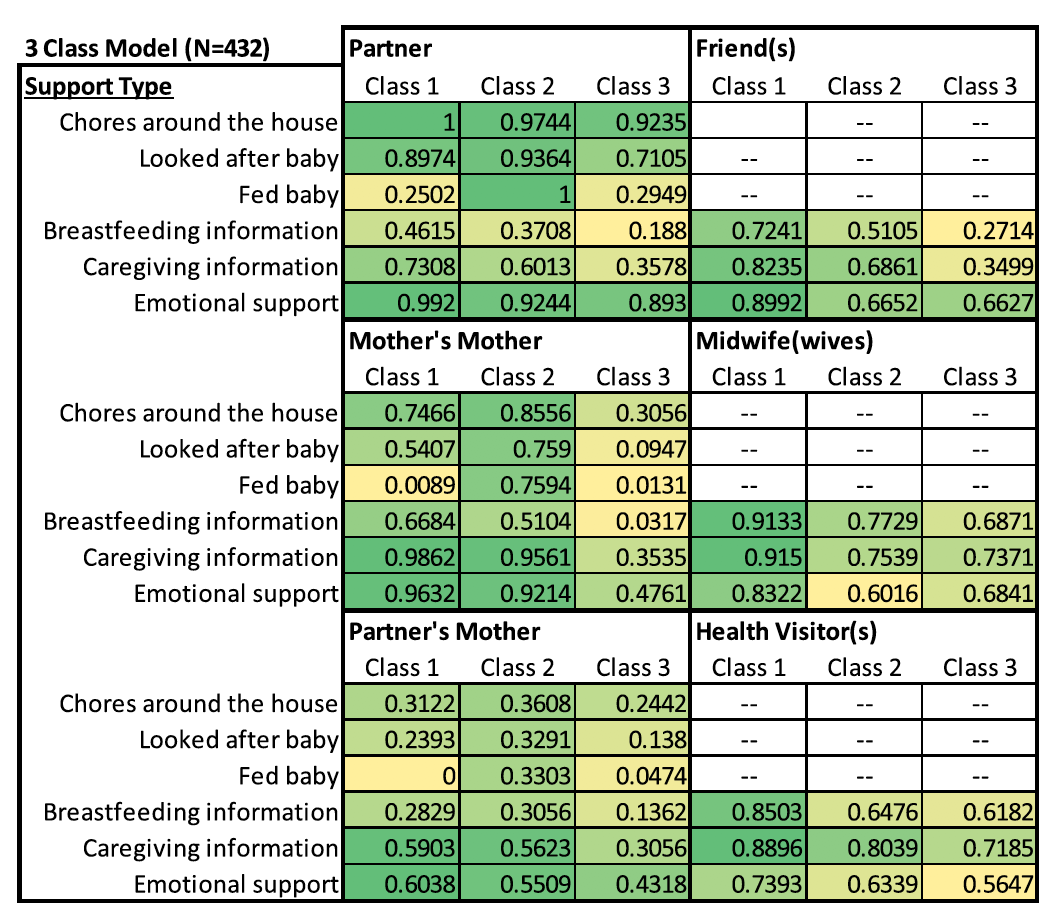Emmott, E. H, Page, A. E. & Myers, S. (2020) Typologies of postnatal support and breastfeeding at two months in the UK. Social Science and Medicine
Citation
Emmott, E. H, Page, A. E. & Myers, S. (2020) Typologies of postnatal support and breastfeeding at two months in the UK. Social Science and Medicine, 246: 112791. doi.org/10.1016/j.socscimed.2020.112791.
Abstract
There is extensive evidence to suggest that social support improves breastfeeding outcomes. Building on this evidence-base, public health services and interventions aiming to improve breastfeeding rates have primarily targeted informational and emotional support to mothers, reflecting an individual behaviour-change approach. However, mothers exist within a wider social network, and the characteristics of their broader support networks may be an important predictor of breastfeeding outcomes. Here we explore the typologies of postnatal support for mothers in the UK; a population with one of the lowest breastfeeding rates in Europe. Using retrospective data from an online survey (data collection period December 2017 - February 2018), we carry out a latent class regression (n = 432) to identify “clusters” of postnatal support in our data. Mothers in our sample were most likely to report receiving practical and emotional support from partners and maternal grandmothers, and breastfeeding information from health professionals. We identify three distinct typologies of postnatal support:
- Extensive support, where mothers received support from a wide range of supporters including partners, maternal grandmothers, friends and health professionals, but mothers were the only ones to feed the infant;
- Family support, where mothers received support from partners and maternal grandmothers, including with infant feeding, but less likely to receive support from health professionals;
- Low support, where mothers primarily received support from partners. 94% of women with extensive support were predicted to be breastfeeding at two months, followed by 48% of mothers in the low support group, and 13% in the family support group. Our findings highlight the complexities of family support and its potential impact on breastfeeding, as well as the significance of professional support.
Overall, our results hint at the potential value for health professionals to engage with wider family in order to achieve extensive support for mothers.
